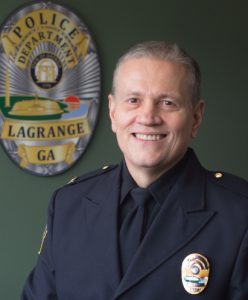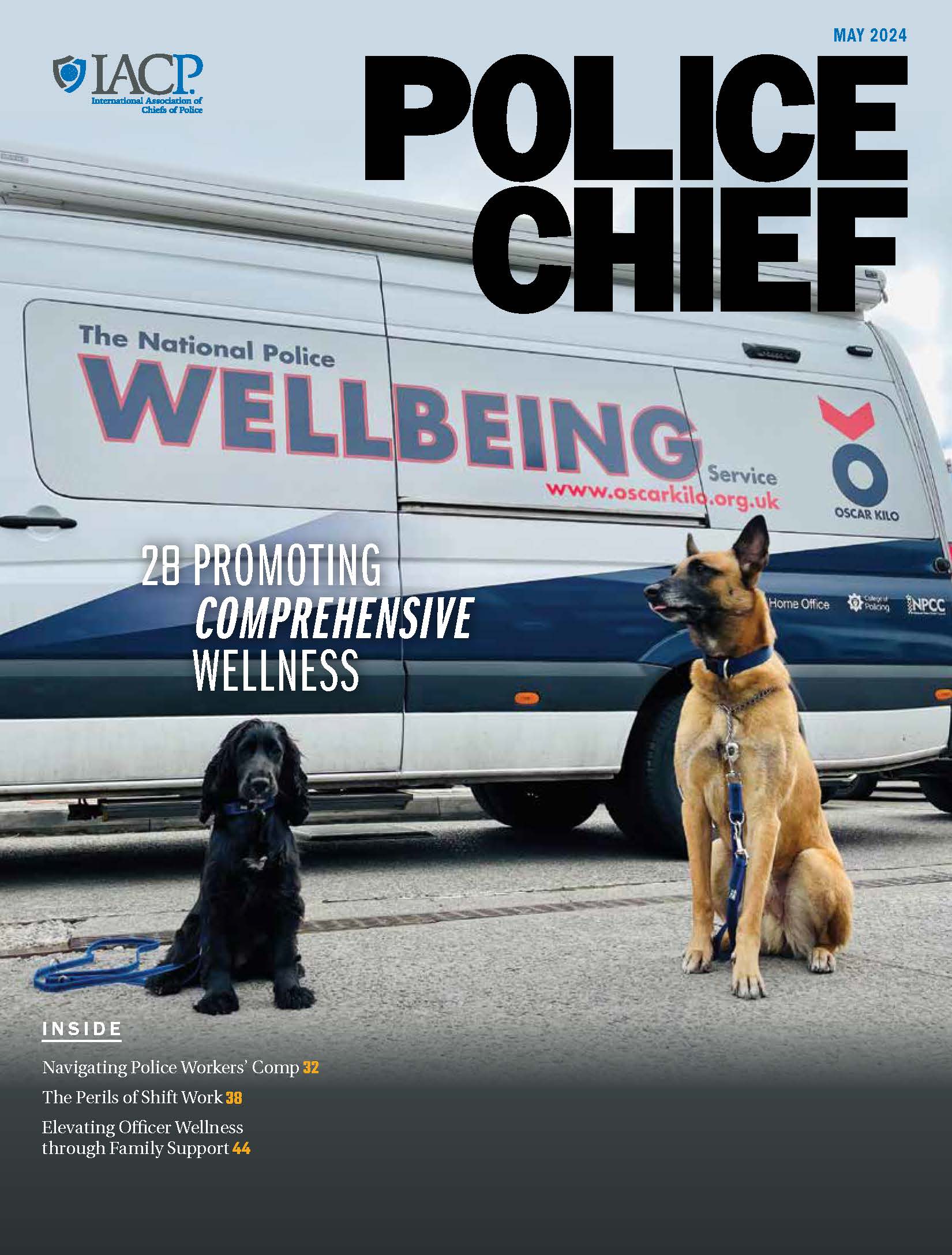
Public trust is the cornerstone of policing, the thread that is woven into every aspect of policing—from combating terrorism, cybercrime, human trafficking, domestic violence, and drug abuse, to the use of technology and traditional policing issues.
When we look behind a specific crime or issue, what we are dealing with are people in the community. There is nothing more important than public trust. Without trust from our communities, law enforcement cannot effectively interact with individuals, carry out investigations, or prevent crimes.
Throughout my career in law enforcement, I have always strived to build strong, trusting community-police relations, as I know you have, too. As a profession, we have worked hard to build and solidify our relationship with the communities we serve. As strong as our relationships may be with our communities, current incidents of use of force, officer-involved shootings, or other interactions that might not have occurred in our communities, but gained global attention, can call into question the profession as a whole and the rapport we have worked so hard to build and maintain. It’s a continual cycle of give and take and constant evolution when it comes to building strong and lasting relationships with the various people who make up our communities.
That is why, as the president of the IACP, I made it one of my priorities to examine the issue of public trust. As I moved up in the ranks of IACP leadership, I knew this was an important issue, so I took a deep look at my community and my department’s relationship with every segment of our community. Overall, I believed my agency had a good relationship with its citizens—we were proactive in our community-policing efforts, held regular neighborhood and community meetings, and generally seemed to get good feedback. However, one day, I learned of two elderly black women who were whispering in the halls of the police department as they pointed to an old photograph on our police department’s wall. Their whispered words: “They killed our people.”
Until that moment, I, and all those who were currently officers with the LaGrange Police Department, were unaware of a tragic event that occurred generations before. A terrible thing happened in my city 78 years ago—a black teenager named Austin Callaway was arrested and charged with trying to assault a white woman. A band of masked white men arrived at the jail that night with at least one gun, compelled the jailer to open the cell, and forced Mr. Callaway into a car. He was driven to a spot eight miles away and lynched.
While that unjust act was unknown to the current officers of the LaGrange Police Department, the memory still burned bright within the minds of our black community. Austin’s story had been passed down from generation to generation, accompanied by the sentiment toward a police department that, nearly eight decades ago, let an incident like that occur. Once I learned of this, I apologized to Austin Callaway’s family and the community for the role the police department played in the tragedy, through both our action and inaction.
It’s generally known that laws enacted by the government have, in the past, required the police to perform many unpalatable tasks to enforce the unjust system of racial segregation. While this is no longer the case, this dark side of our shared history has created a multigenerational—almost inherited—mistrust between many communities of color and their law enforcement agencies.
This inherent mistrust existed in my own community. In how many other communities across the globe do these same generational sentiments exist? How long will this historical mistrust persist?
For law enforcement to truly build trust and move forward, we need to understand how past injustices influence the present. As Winston Churchill so eloquently said, “Those that fail to learn from history, are doomed to repeat it.” While an acknowledgement is not a quick fix, it is a step forward. These discussions in our communities and the efforts that accompany them are not easy. They can result in sharp criticism and harsh judgments regarding the law enforcement agency and what they represent. But as a black pastor involved in our Racial Trust Building effort so persuasively stated, “If you are going to be a bridge, don’t be surprised if you are walked on.” I challenge my colleagues across the globe to be that bridge and move their communities and agencies forward.
For law enforcement to truly build trust and move forward, we need to understand how past injustices influence the present.
To continue to bolster trust between the police and the communities we serve, I have embarked upon a series of listening tours to hear directly from members of communities about their relationships with their police departments, what is being done right, what areas need improvement, and their overall sentiment toward law enforcement. To date, we have held listening sessions in Albany, New York, and Ferguson, Missouri, with sessions coming up in Sacramento, California, and Fort Morgan, Colorado.
So far, the common themes from these listening sessions have been transparency, youth engagement, hiring, training, increasing community involvement and input, and creating a deeper understanding of our shared history through civil rights training to enhance current interactions.
Once we complete the remaining listening sessions, the IACP will begin to assemble a series of resources for the profession based on the common themes and feedback heard in these sessions. Additionally, we will be offering tailored assistance to each of the communities that graciously hosted our listening sessions through some of IACP’s services like CRI-TAC, Collective Healing, and the Institute for Community-Police Relations.
While we hope these resources will prove valuable, we know that this work cannot fall on the shoulders of the police alone. Work will be required by all members of the community, with the realization that individual trust does not translate into broader trust. Just because your community trusts you as a chief, this doesn’t automatically translate into trust of your entire agency or, even more broadly, trust in the profession. Building that trust is like any other relationship; it needs constant attention and daily work, or it will erode.
I look forward to releasing the report from the listening sessions and working to strengthen the much-needed partnerships that ensure the police are effective and our communities and officers are safe.
Please cite as
Louis M. Dekmar, “The Cornerstone of Policing: Public Trust,” President’s Message, Police Chief 85, no. 8 (August 2018): 6.


